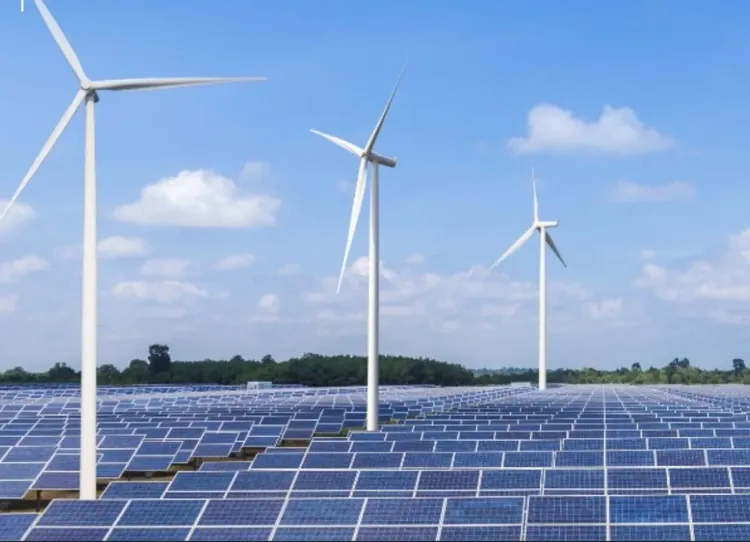Did the Cabinet Approve Rs 20,000 Crore Investment by NTPC to Enhance Renewable Energy Capacity?

Synopsis
Key Takeaways
- Investment of Rs 20,000 crore approved
- Focus on renewable energy capacity
- NTPC to add 60 GW by 2032
- Job creation and local enterprise support
- India's commitment to sustainable development
New Delhi, July 16 (NationPress) As India reaches 50 percent of its installed electricity capacity from non-fossil fuel sources, the Cabinet Committee on Economic Affairs (CCEA), led by Prime Minister Narendra Modi, has recently approved an increased delegation of power to NTPC Ltd for investments in NTPC Renewable Energy Ltd and its associated joint ventures/subsidiaries to establish renewable energy capacity with a budget of up to Rs 20,000 crore.
The Cabinet has granted enhanced delegation of authority to NTPC Limited, moving beyond the current guidelines for Maharatna CPSEs, allowing investments in NTPC Green Energy Limited (NGEL), a subsidiary. Subsequently, NGEL can invest in NTPC Renewable Energy Limited (NREL) and its other JVs/subsidiaries, increasing the investment limit from Rs 7,500 crore to Rs 20,000 crore for renewable energy (RE) capacity addition aimed at achieving 60 GW capacity by 2032.
An official statement indicated that this enhanced delegation is set to expedite the development of renewable projects across the nation.
“This initiative will significantly contribute to bolstering power infrastructure and ensuring investments for reliable, continuous electricity access nationwide,” stated a Cabinet note.
Renewable energy projects are also expected to create direct and indirect job opportunities for local populations during both the construction and operations and maintenance (O&M) phases.
This will provide a boost to local suppliers and enterprises, promote entrepreneurship, and foster socio-economic development within the country.
India has made a historic achievement in its energy transition journey by attaining 50 percent of its installed electricity capacity from non-fossil fuel sources—five years ahead of the target established under its Nationally Determined Contributions to the Paris Agreement.
The nation aims to reach 500 GW of non-fossil energy capacity by 2030.
As a leading Central Public Sector Enterprise and the main power utility in the country, NTPC aims to add 60 GW of renewable energy capacity by 2032, contributing to the nation’s goals and advancing towards achieving 'Net Zero' emissions by 2070.
NGEL serves as the flagship listed subsidiary of the NTPC Group for expanding renewable energy capacity through both organic and inorganic growth.










